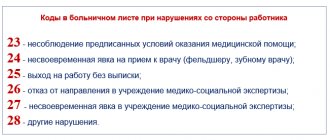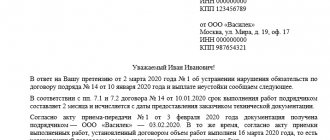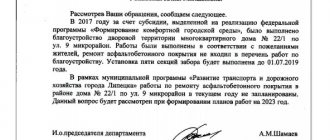Civil Code of the Russian Federation:
Article 1101 of the Civil Code of the Russian Federation. Method and amount of compensation for moral damage
1. Compensation for moral damage is carried out in cash.
2. The amount of compensation for moral damage is determined by the court depending on the nature of the physical and moral suffering caused to the victim, as well as the degree of guilt of the harm-doer in cases where guilt is the basis for compensation for harm. When determining the amount of compensation for harm, the requirements of reasonableness and fairness must be taken into account.
The nature of physical and moral suffering is assessed by the court, taking into account the actual circumstances in which moral harm was caused and the individual characteristics of the victim.
Return to the table of contents of the document: Civil Code of the Russian Federation part 2 in the current (latest) edition
Legislation
The law does not specify what kind of moral damages can be claimed. The victim must calculate the amount based on the level of his moral and physical suffering.
According to the law, the court compensates for damage based on the principles of fairness and reasonableness. This rule is enshrined in Article 1101 of the Civil Code and duplicated in Resolution of the Plenum of the Supreme Court dated December 20, 1994 No. 10.
Dear readers! To solve your problem right now, get a free consultation
— contact the lawyer on duty in the online chat on the right or call: +7 (499) 938 6124 — Moscow and region.
+7 (812) 425 6761 — St. Petersburg and region. 8 (800) 350 8362 - Other regions of the Russian Federation You will not need to waste your time and nerves
- an experienced lawyer will solve all your problems!
Therefore, in order to recover compensation, a plaintiff must take these principles into account without asking for multimillion-dollar sums without justification.
IMPORTANT: a claim for compensation can be made not only in civil cases, but also in criminal proceedings.
Moral injury
Concept of moral hazard
Moral harm, as a rule, is understood as causing moral and physical suffering to a person, which violates the comfort of life, the state of human health, etc.
In Art. 151 of the Civil Code of the Russian Federation, moral harm is disclosed by the legislator as physical or moral suffering caused to a citizen by actions that violate his personal non-property rights or encroach on intangible benefits belonging to the citizen, as well as in other cases provided for by law.
A broader definition was given by the Supreme Court of the Russian Federation in paragraph 2 of Plenum Resolution No. 10 of December 20, 1994 “Some issues of application of legislation on compensation for moral harm” (hereinafter referred to as Plenum Resolution No. 10): moral harm is understood as moral or physical suffering caused by actions ( inaction), encroaching on intangible benefits belonging to a citizen from birth or by force of law (life, health, personal dignity, business reputation, privacy, personal and family secrets, etc.), or violating his personal non-property rights (the right to the use of one’s name, the right of authorship and other non-property rights in accordance with laws on the protection of rights to the results of intellectual activity), or violating the property rights of a citizen.
Thus, moral harm is suffering caused to a citizen (person) by the actions (inaction) of third parties that violated his rights, freedoms and legitimate interests.
Signs of moral harm
Moral damage, unlike property damage, often exists only in the consciousness of a citizen (person) and can be externally expressed in various ways that are subjective in nature. Therefore, difficulties may arise in determining specific signs of moral harm.
However, based on the above definitions of moral harm, it can be assumed that the signs of moral harm include:
a) moral suffering - a feeling of internal psychological discomfort, experiences that lead to a deterioration in the internal and external comfort of life, affect the perception of life. They can be expressed in various ways: fear, excitement, anxiety, irritability, shame, depressed mood, etc. They are an obligatory element of moral harm, since the word “moral” itself implies affecting the moral and mental component of a person;
b) physical suffering - a feeling of physical (physiological) discomfort, expressed in pain and other unpleasant phenomena of a physiological nature (fever, systemic and non-systemic dizziness, etc.). They are caused both by injury and illness, and by the influence of external negative factors, poisonous and other harmful effects (for example, high temperature, toxic substances, etc.). They are not a mandatory element of moral harm. But, as a rule, the infliction of physical suffering inevitably causes the appearance of moral suffering. Also, moral suffering can cause physical suffering, when internal experiences provoke physical discomfort, increased blood pressure, fever, etc.
The Supreme Court of the Russian Federation pointed out similar content and signs of moral harm, explaining that moral harm, in particular, may consist of moral experiences in connection with the loss of relatives, the inability to continue an active social life, loss of a job, disclosure of family or medical secrets, the dissemination of information that is true, discredits the honor, dignity or business reputation of a citizen, temporary restriction or deprivation of any rights, physical pain associated with injury, other damage to health, or in connection with a disease suffered as a result of moral suffering, etc. ( paragraph 2, paragraph 2 of the Plenum Resolution No. 10).
Liability for causing moral damage
According to Art. 151 of the Civil Code of the Russian Federation, if a citizen has suffered moral harm, the court may impose on the offender the obligation of monetary compensation for the specified harm.
Liability for causing moral damage is also provided for in Art. Art. 1099 - 1101 of the Civil Code of the Russian Federation in the form of recovery of compensation in monetary form.
Thus, liability for causing moral damage is of a civil, property nature, and is expressed in the collection of monetary compensation in favor of the injured person.
Compensation for moral damage and the procedure for awarding it
In accordance with paragraph 1 of Art. 1101 of the Civil Code of the Russian Federation, compensation for moral damage is carried out in cash. A similar form of compensation is provided for by the norms of other federal laws. So, for example, in Art. 237 of the Labor Code of the Russian Federation states that moral damage caused to an employee by unlawful actions or inaction of the employer is compensated to the employee in cash.
The amount of compensation for moral damage can be determined in several ways:
a) by agreement of the parties to the dispute among themselves, including in pre-trial proceedings, or in court by concluding a settlement agreement (Article 39 of the Code of Civil Procedure of the Russian Federation) or until moral harm is caused, for example, by fixing the corresponding provision in the employment contract (Article 237 of the Labor Code of the Russian Federation );
b) in court - by the court based on an assessment of the evidence provided in the case materials.
In most cases, in practice, the recovery of compensation for moral damage is carried out in court. In this case, according to paragraph 2 of Art. 1101 of the Civil Code of the Russian Federation, the amount of compensation is determined by the court. In this case, the court evaluates:
a) the nature of the physical and moral suffering inflicted on the victim.
For example, when determining the amount of compensation, the court proceeded from the fact that as a result of the actions of the defendant, the plaintiff suffered bodily injuries that did not cause harm to his health (Appeal ruling of the Rostov Regional Court dated August 25, 2016 in case No. 33-14823/2016).
The degree of moral or physical suffering is assessed by the court taking into account the actual circumstances of the infliction of moral harm, the individual characteristics of the victim and other specific circumstances indicating the severity of the suffering he suffered (paragraph 2, paragraph 8 of Resolution of the Plenum No. 10);
b) the presence of a cause-and-effect relationship between the factors allegedly causing harm and the occurrence of harm.
For example, to substantiate the claim for compensation for moral damage, the plaintiff indicated that as a result of the defendant’s unlawful actions, his health condition deteriorated. A forensic medical examination was ordered in the case, the conclusion of which had a probabilistic ambiguous conclusion - the aggravation could be caused by various factors, incl. stressful situations due to the behavior of the alleged perpetrator of harm. In this situation, the court considered the cause-and-effect relationship between the defendant’s behavior and the occurrence of an exacerbation unproven. And although, as a result, compensation for moral damage was recovered taking into account other factors, its amount was lower than expected (Appeal ruling of the Altai Regional Court dated October 9, 2013 in case No. 33-5345/2013);
c) the degree of guilt of the harm-doer, unless the law provides for compensation for harm regardless of the presence of guilt.
Thus, when determining the amount of compensation, the court had to take into account the degree of guilt of the harm-doer, that is, the adoption by the relevant body (institution) of all possible and dependent measures to comply with the proper conditions for serving a sentence of imprisonment (in particular, in order to ensure the privacy of sanitary -hygienic procedures) (Determination of the Judicial Collegium for Civil Cases of the Supreme Court of the Russian Federation dated November 14, 2017 N 84-KG17-6).
Cases when compensation for moral damage is carried out regardless of the guilt of the harm-doer are specified in Art. 1100 Civil Code of the Russian Federation:
- harm was caused to the life or health of a citizen by a source of increased danger;
- harm was caused to a citizen as a result of his illegal conviction, illegal prosecution, illegal use of detention or recognizance as a preventive measure, illegal imposition of an administrative penalty in the form of arrest or correctional labor;
- harm was caused by the dissemination of information discrediting honor, dignity and business reputation;
- in other cases provided by law.
Due to the fact that moral and physical suffering is subjective in nature and depends on the characteristics of a particular person, they, unlike property damage, are difficult to assess and measure with objective indicators, therefore the nature of physical and moral suffering is assessed by the court taking into account:
a) the actual circumstances in which moral damage was caused.
For example, when satisfying the claim for compensation for moral damage, the court took into account the fact that the insult to the victim was inflicted in public; the perpetrator hit the pregnant victim, who was hospitalized in a hospital due to the threat of miscarriage (Appeal ruling of the Krasnodar Regional Court dated August 16, 2016 in case No. 33 -20241/2016).
The behavior of the victim at the time of the harm is also taken into account.
Thus, the judicial panel agreed with a reduction in the amount of compensation for moral damage, since the plaintiff, being in the car as a passenger in the front seat, in violation of clause 5.1 of the Russian Federation Traffic Regulations, was not wearing a seat belt, which aggravated the severity of the injuries he received (Appeal ruling of the Sverdlovsk Regional Court dated July 24, 2014 in case No. 33-9003/2014);
b) the individual characteristics of the victim.
For example, the court took into account such a factor as the continuation of pain in the injured knee joint even after treatment, that is, the long-term nature of the victim’s physical suffering (Appeal ruling of the Supreme Court of the Republic of Adygea dated March 25, 2016 in case No. 33-404/2016).
In another dispute, the court drew attention to the type of activity of the victim (trainer), based on and requiring regular physical activity. The injuries received by the plaintiff certainly prevented the exercise of professional activity for a long period of time, which cannot be limited only by the time of incapacity determined by the medical organization, that is, the victim was deprived of the opportunity to exercise his right to work for a long time (Appeal ruling of the Perm Regional Court dated 10/05/2015 in case No. 33-10360/2015).
So, the amount of compensation is determined in each specific case individually, taking into account all the circumstances of the case. Meanwhile, when determining the size in accordance with clause 2 of Art. 1101 of the Civil Code of the Russian Federation, the requirements of reasonableness and fairness must be taken into account. In this regard, judicial acts on the collection of compensation may be changed or canceled on the grounds of disproportionate and unfair compensation.
For example, the appellate court changed the decision of the first instance court regarding the amount of compensation for moral damage collected, since the amount is underestimated and does not correspond to the volume of the plaintiff’s rights violated, the requirements of reasonableness and fairness. Taking into account the factual circumstances of the illegal criminal prosecution, its duration, the nature of the moral suffering that the plaintiff suffered, his state of health, age, the requirements of reasonableness and fairness, the judicial panel came to the conclusion that it was necessary to increase the compensation for moral damage collected by the court (Appeal ruling of the Supreme Court of the Republic Bashkortostan dated August 30, 2016 in case No. 33-16727/2016).
Claim for compensation for moral damage
To recover compensation for moral damage, a claim must be filed in court. A claim for compensation for moral damage can be combined with other claims, but it is also possible to file an independent claim with only one claim for compensation (clause 9 of Plenum Resolution No. 10).
The statement of claim is subject to general requirements, in particular those specified in Art. Art. 131 and 132 of the Code of Civil Procedure of the Russian Federation. Based on their meaning, the application must necessarily contain the following information:
a) indication of the cause of harm;
b) under what circumstances and how the harm was caused and what evidence confirms this;
c) what the moral damage is, that is, what specific suffering the plaintiff experienced. It is worth noting that this is not always required, since in labor disputes and disputes over the protection of consumer rights, compensation for moral damage can be recovered if a violation of a citizen’s legal rights is proven. However, an indication of the degree of harm caused, of what the harm is expressed in, can significantly affect the amount of compensation.
In a number of cases, if a violation of a citizen’s rights or physical harm to the health or life of loved ones is proven, moral harm is presumed (presumed to have been caused). For example, in the case of harm to the health of the victim, since in all such cases the victim experiences physical or moral suffering, therefore the fact of causing him moral harm is assumed, and in this case only the amount of compensation for moral harm is subject to determination (paragraph 2 of clause 32 of the Resolution of the Plenum Supreme Court of the Russian Federation dated January 26, 2010 No. 1 “On the application by courts of civil legislation regulating relations under obligations resulting from harm to the life or health of a citizen”).
When submitting an application, a state fee is paid on the basis of paragraphs. 3 p. 1 art. 333.19 of the Tax Code of the Russian Federation as for a claim of a non-property nature (clause 10 of the Resolution of the Plenum No. 10). This is due to the fact that, although compensation for moral damage is sought in monetary form, the damage itself is of a non-property nature.
So, moral harm is suffering caused to a citizen (person) by the actions or inaction of third parties that violated his rights, freedoms and legitimate interests; includes two main features - moral and physical suffering. Liability for causing moral damage is of a civil nature in the form of payment of monetary compensation to the victim. Compensation is paid by the causer of harm voluntarily or in court. In the latter case, the amount of compensation is determined by the court, taking into account all the circumstances of the harm and the individual characteristics of the victim.
Prepared based on material by S.A. Slesareva,
private practicing lawyer, expert, Mtsensk
How to assess moral damages under the law
Before calculating moral damages, it is necessary to prove:
- the fact of causing suffering;
- circumstances and specific acts that caused suffering;
- the causal relationship between the act and the suffering;
- specific suffering (illness, harm to health, etc.);
The statement of claim indicates the circumstances of the harm, the suffering of the victim, evidence, such as witness testimony, expert opinions, explanations of the plaintiff, and others.
If a criminal or administrative case has been initiated based on the fact of causing damage, then these circumstances may be reflected in the statement of claim. In addition, survey results can be used to assess compensation.
Recommended publications:
Compensation for moral damage. Amounts in practice. Lawsuits
For claims for compensation for harm, including compensation for moral damage, see the section “statement of claim for compensation for harm.”
On compensation for moral damages for assault and minor bodily harm:
- Compensation for moral damages for beatings and harm to health
- Amount of compensation for moral damages for beatings. Arbitrage practice
- Amount of compensation for moral damages for minor injuries to health. Arbitrage practice
How to calculate the amount correctly
It must be remembered that the court determines the size, guided by the principles of reasonableness and fairness. Therefore, the amount must be justified and proven. Demanding compensation without grounds is a direct path to denial of the claim.
IMPORTANT: you cannot request an expert assessment, because... The plaintiff determines the degree of suffering himself.
What to rely on when calculating compensation:
- Severity of damage: moderate damage is assessed as more expensive than light damage.
- Material costs, such as purchasing medications.
- Duration of treatment.
- Degree of change in life after injury: inability to perform typical work.
- Qualities and personality traits. Acquisition of mental illnesses, exacerbation of chronic ones.
- Accounting for the amount of damage. For example, a ruined vacation or the need to look for a new job due to loss of ability to work.
- Guilt of the offender: negligence, intent.
IMPORTANT: it is possible to take into account the material costs incurred (their cost) as one of the justifications for the size. But you cannot collect this amount or add it to the amount of compensation.
Maximum amount
The amount depends on the circumstances of the case, the qualities of the victim, legal practice in court, region, and economic situation.
Bringing the culprit to criminal or administrative liability may have an impact, because The plaintiff will have less to prove the circumstances of the injury.
The final amount received depends on the severity of the injuries:
- heavy;
- average;
- lungs.
The basis may be the criterion of the magnitude of the crime. Thus, intentionally causing grievous bodily harm under qualifying circumstances is a serious crime.
Personal income tax
According to the author, the issue of calculating personal income tax on the amount of compensation for moral damage has not been properly studied. Let's try to fill this gap.
Taxable income of an individual is recognized as economic benefit in cash or in kind, taken into account if it is possible to evaluate it and to the extent that such benefit can be assessed (clause 1 of Article 41 of the Tax Code of the Russian Federation). Does compensation for moral damage generate economic benefits? The court answered this question in the negative (clause 7 of the Review of the practice of courts considering cases related to the application of Chapter 23 of the Tax Code of the Russian Federation, approved by the Presidium of the Supreme Court of the Russian Federation on October 21, 2015). The judges did not provide a detailed argument. But let’s think about it: in essence, this compensation is a “payment” for suffering. To classify it as an economic benefit to an individual is immoral. The victim receives a sum of money not due to economic relations with the harm-doer.
Meanwhile, regulatory authorities consider this compensation as income that can be exempt from taxation on the basis of paragraph 3 of Article 217 of the Tax Code of the Russian Federation - as a compensation payment established by the current legislation of the Russian Federation. Officials interpret compensation for moral damage either as compensation for harm caused to health (letters from the Ministry of Finance of Russia dated November 11, 2016 No. 03-04-06/66353, Federal Tax Service of Russia dated March 5, 2018 No. GD-4-11 / [email protected] ), or as payment related to the performance of labor duties (letter of the Ministry of Finance of Russia dated November 11, 2016 No. 03-04-05/66167). At the same time, they invariably emphasize that only compensation ordered by the court is exempt from personal income tax.
We cannot agree with these approaches. Our objections are as follows.
First of all, moral harm is not equivalent to harm to health. Federal Law of November 21, 2011 No. 323-FZ “On the fundamentals of protecting the health of citizens in the Russian Federation” defines health as a state of physical, mental and social well-being of a person, in which there are no diseases, as well as disorders of the functions of organs and systems of the body. The rules for determining the severity of harm caused to human health were approved by Decree of the Government of the Russian Federation dated August 17, 2007 No. 522. Based on the Rules (clauses 1-3), harm to health is understood as a violation of the anatomical integrity and physiological function of human organs and tissues as a result of exposure to physical, chemical, biological and mental environmental factors. Harm caused to health is determined based on the results of a forensic medical examination depending on the degree of its severity (severe harm, moderate harm and minor harm). However, this approach does not apply to claims for compensation for moral damage. However, officials insist on the “medical” nature of “moral” compensation even in relation to payments made in accordance with decisions of the European Court of Human Rights (letter of the Ministry of Finance of Russia dated October 3, 2013 No. 03-04-07/41151, Article 41 of the Convention on protection of human rights and fundamental freedoms).
On the other hand, the position according to which only compensation for moral damage caused to employees is exempt from taxation is discriminatory. It violates the basic principles of the legislation on taxes and fees (clauses 1, 2, article 3 of the Tax Code of the Russian Federation). The degree of suffering does not depend on the circumstances under which it was caused - within the framework of labor or civil law relations.
note
In cases where the interests of a citizen require it, intangible benefits belonging to him can be protected, in particular, by the court recognizing the fact of violation of his personal non-property right, publishing a court decision on the violation, as well as by suppressing or prohibiting actions that violate or create a threat of violation personal non-property right or encroaching or creating a threat of encroachment on an intangible benefit (clause 2 of article 150 of the Civil Code of the Russian Federation).
For the same reasons, exemption from personal income tax cannot be made dependent on who exactly awarded the compensation - the court or the employer (even though the latter is permitted by law). Moreover, by resolution of the Federal Antimonopoly Service of the West Siberian District dated June 13, 2006 No. F04-3386/2006 (23325-A27-31), compensation for moral damage paid to the relatives of deceased workers by agreement of the relatives with the employer was exempt from personal income tax.
We noted above that the concept of compensation implies reimbursement of material costs. But in connection with moral damage there are none. As a result, it seems that the term “compensation for moral harm” should be considered as indivisible and integral, without tearing out the concept of “compensation” from it. In our opinion, the problem deserves a legislative settlement or, as a preliminary option, a decision at the level of the Constitutional Court of the Russian Federation. In the meantime, irremovable doubts and ambiguities in tax legislation should be interpreted in favor of the taxpayer and the tax agent, without punishing the latter (Clause 7, Article 3, Article 123 of the Tax Code of the Russian Federation).
Please note: the unregulated taxation of compensation for moral damage allows employers to pay injured employees (based on an agreement of the parties) amounts limited only by the financial capabilities of the company (!). How can tax inspectors not worry?
How much can you recover: example of calculation for filing a lawsuit
There are rules. The most well-known calculation method is the Erdelevsky formula. As a monetary equivalent, it displays the amount of compensation based on the minimum wage.
IMPORTANT: neither courts nor parties use these formulas when calculating fees, since they are based on theoretical principles that are not applicable in real life when determining how much should be collected.
Since there is no algorithm for how to correctly calculate harm, you can use the following descriptive examples.
Using the example of minor health damage (2 teeth knocked out):
- I estimate the pain during knocking out teeth at 20,000 rubles.
- Pain after knocking out before the administration of anesthetic for 25,000 rubles.
- Pain during surgery to install a prosthesis costs 10,000 rubles.
- I estimate the inconvenience and moral suffering due to missing teeth at 10,000 rubles.
- In total, I ask you to recover 65,000 rubles.
Using the example of beatings:
- The defendant inflicted physical pain on me by kicking and punching me on the torso, which is confirmed by an examination report, an expert’s report, and a certificate from the hospital.
- Due to a disruption in the normal functioning of the body, I had to take a day off from work. Part of my salary was withheld, due to which I experienced moral suffering, because... I have two children who need to be fed.
- Since the beating took place on a crowded street, I experienced additional suffering due to the humiliation of my honor and dignity.
- Due to a long-term injury, I had to give up morning jogging, which I have been doing for 10 years, which undermines my physical fitness and causes mental suffering.
- In connection with the above, I estimate moral damage at 40,000 rubles.









